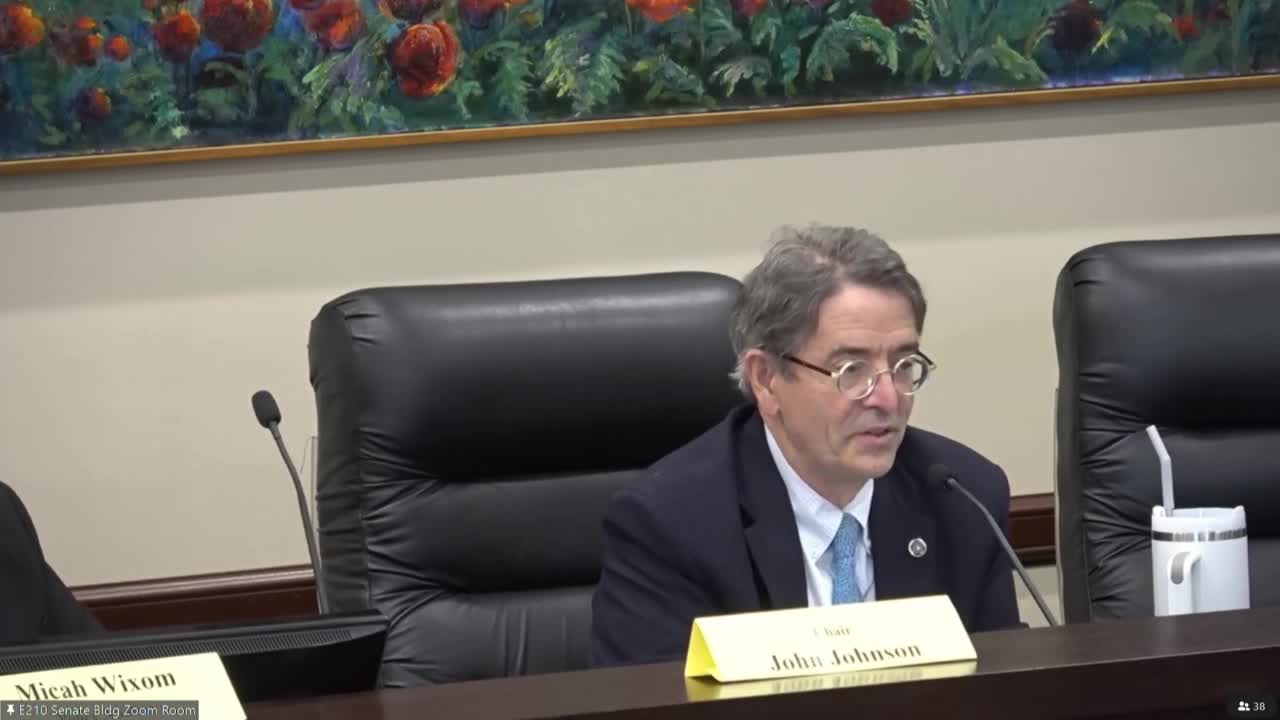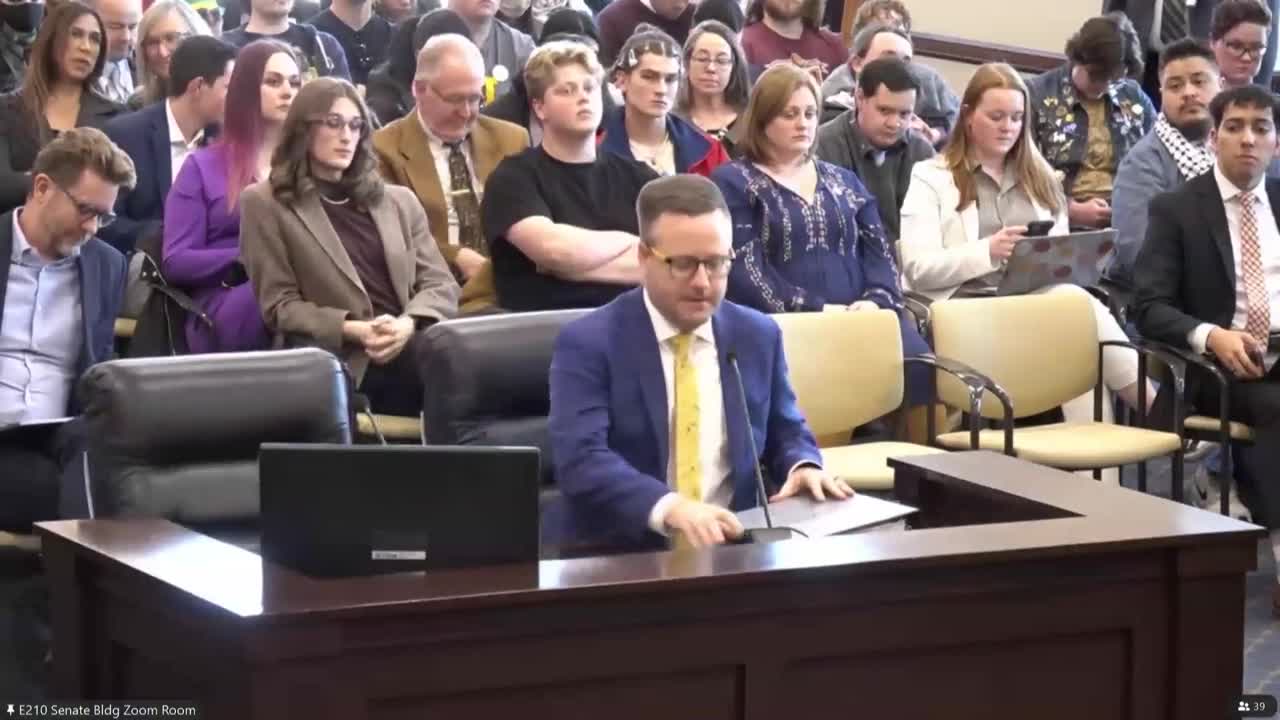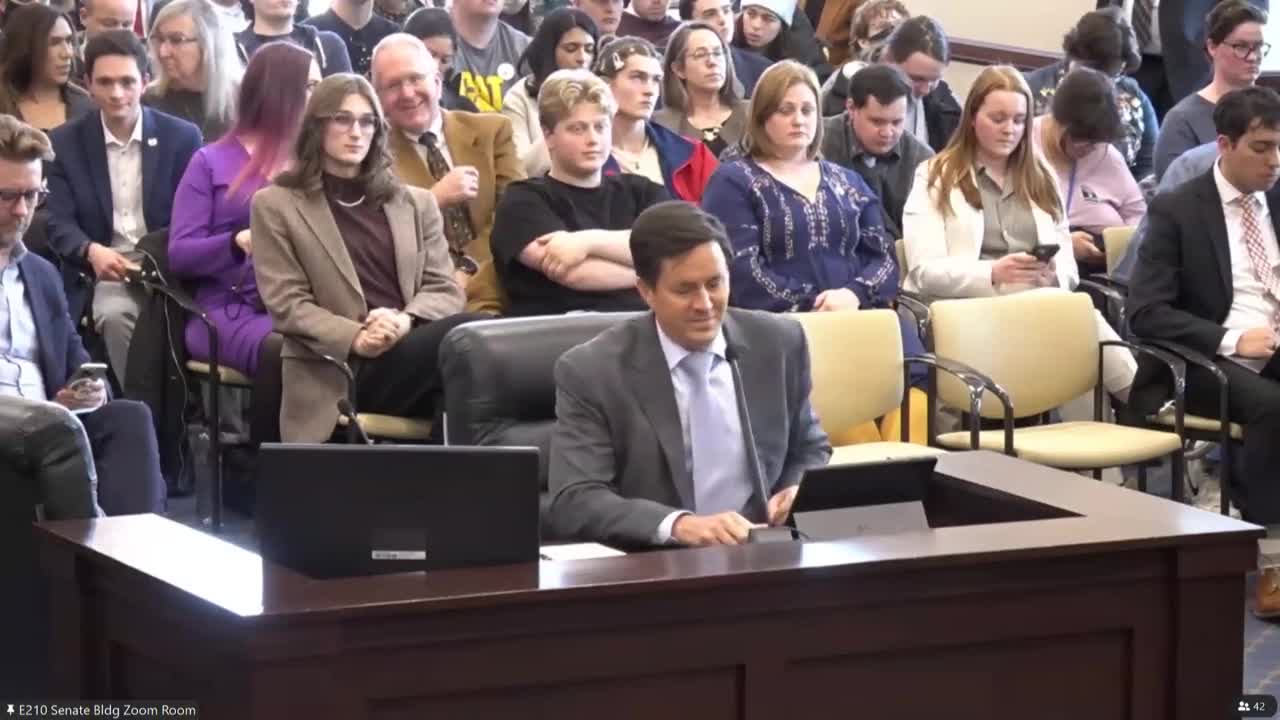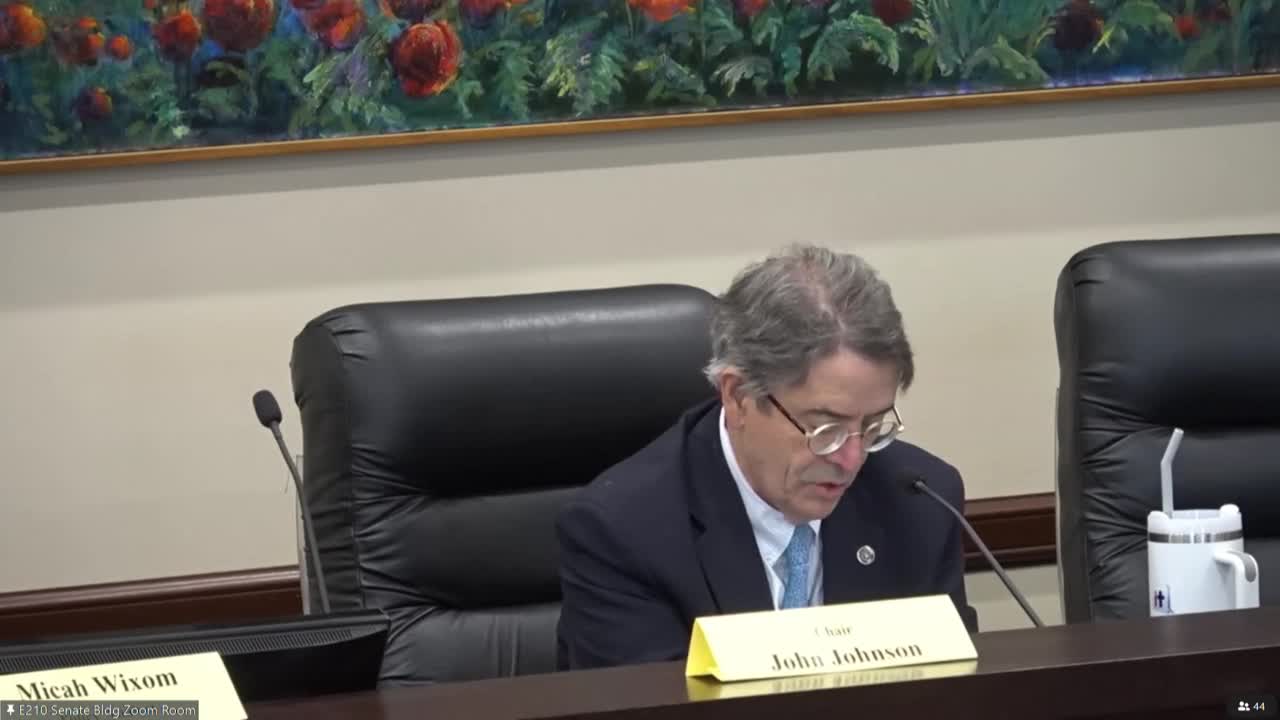Article not found
This article is no longer available. But don't worry—we've gathered other articles that discuss the same topic.

Committee advances HB 269 after extensive public comment on sex-designated campus housing

Committee approves bill allowing political parties to use larger college venues for conventions

Committee advances bill to separate private/home school online program administration

